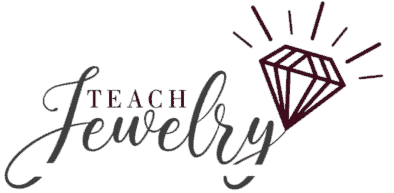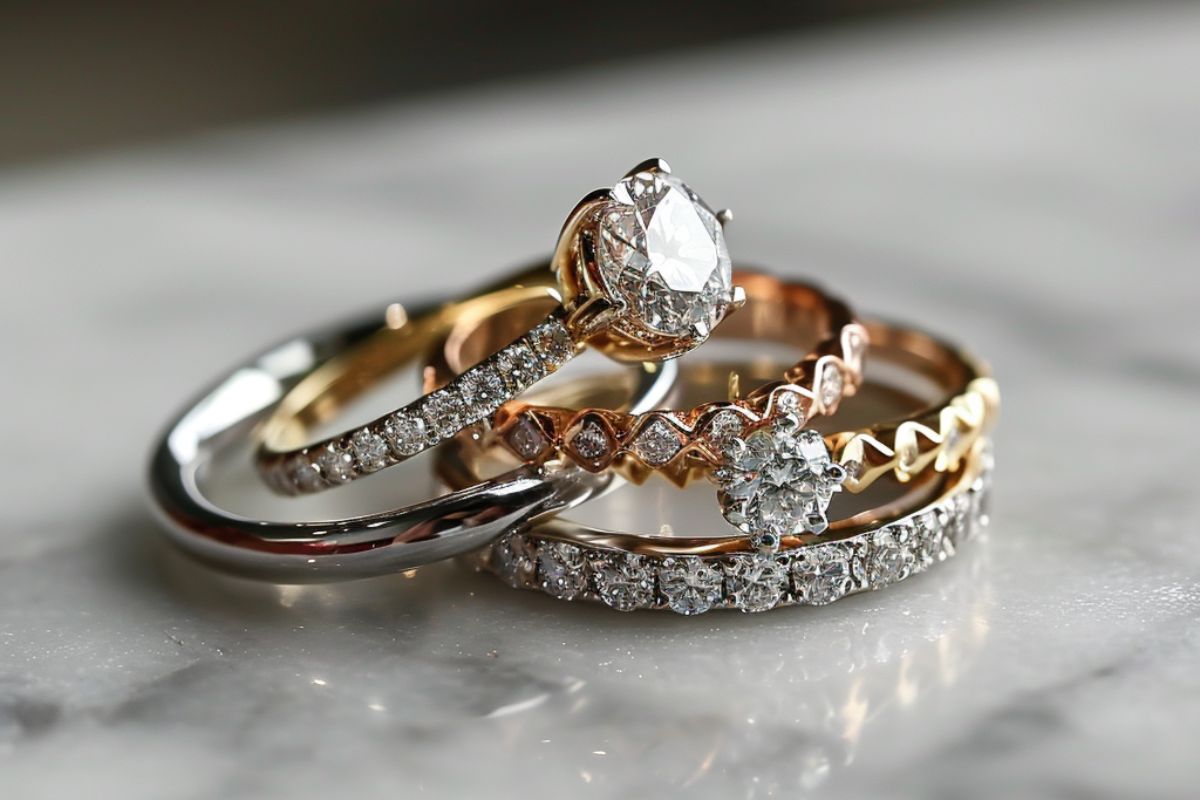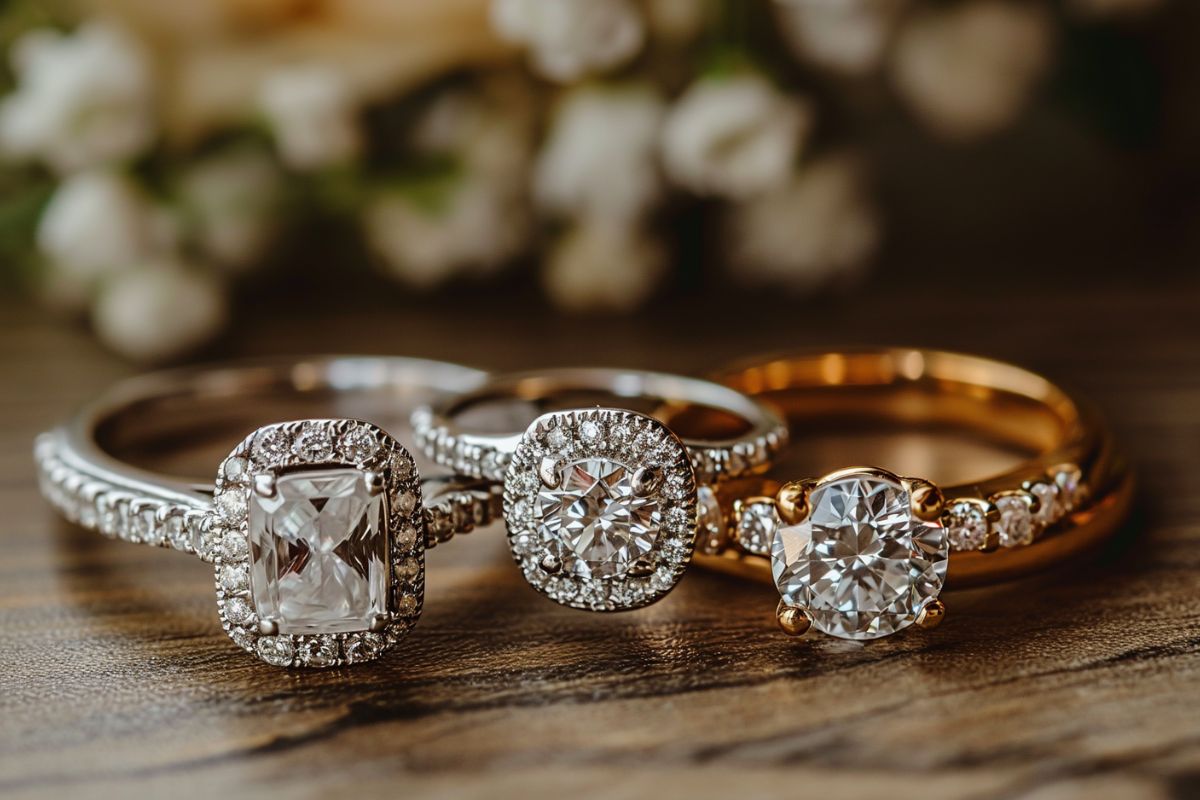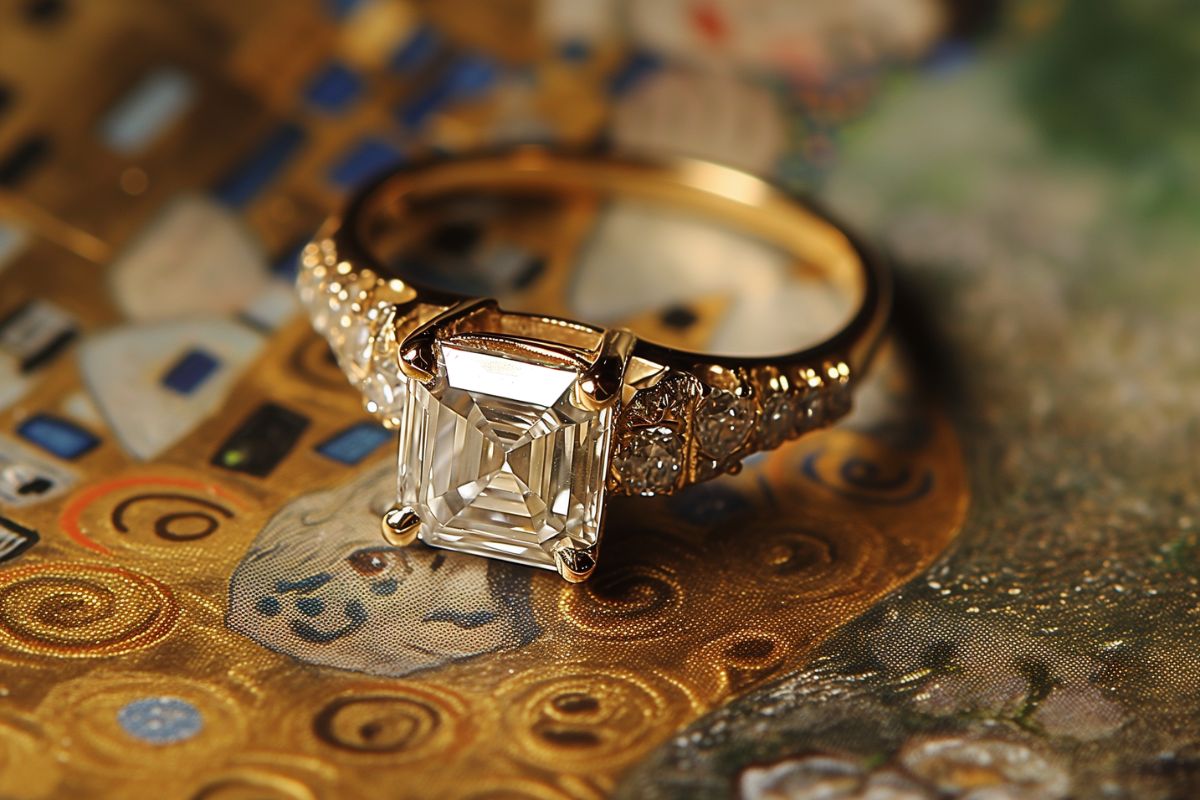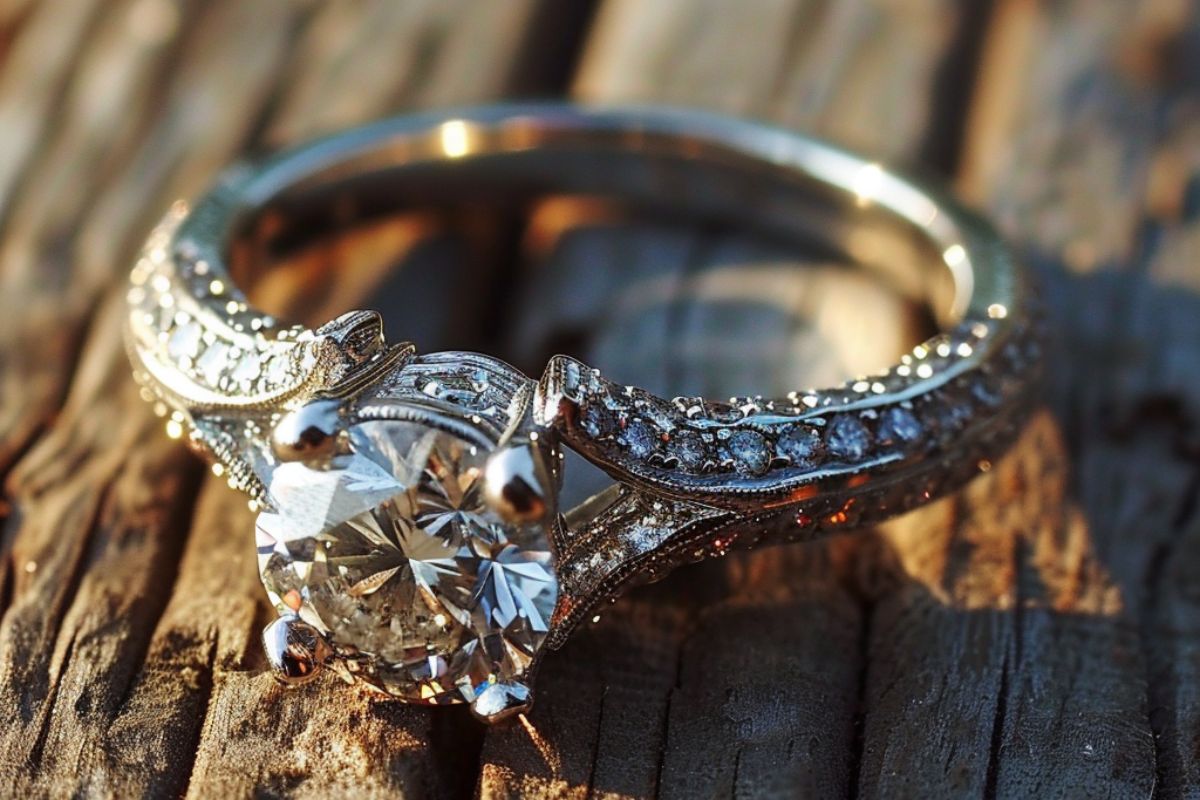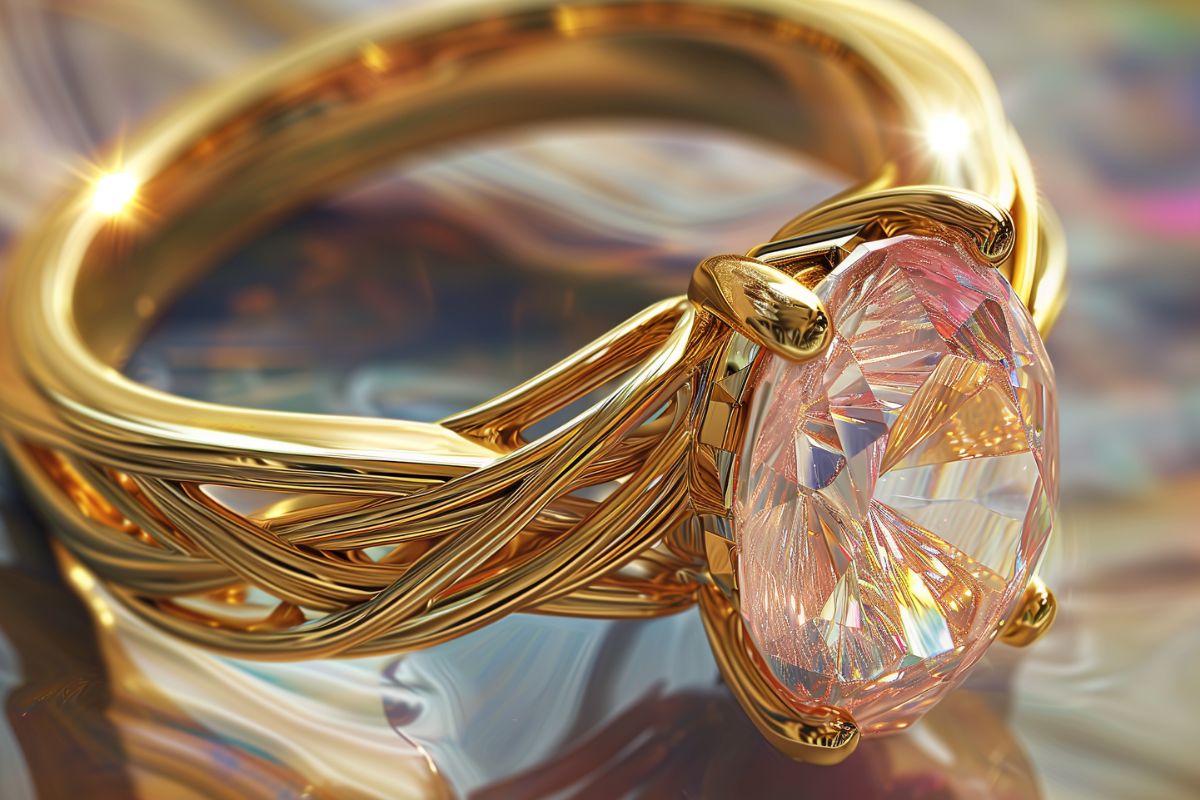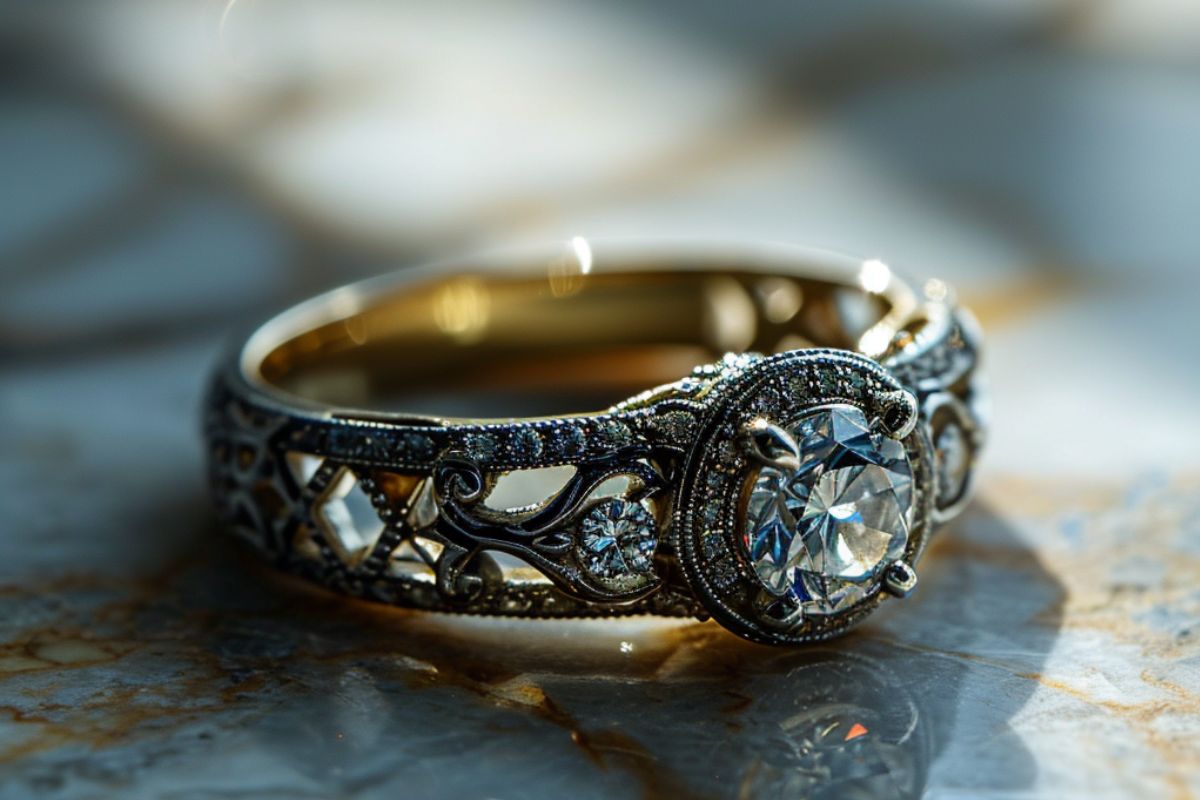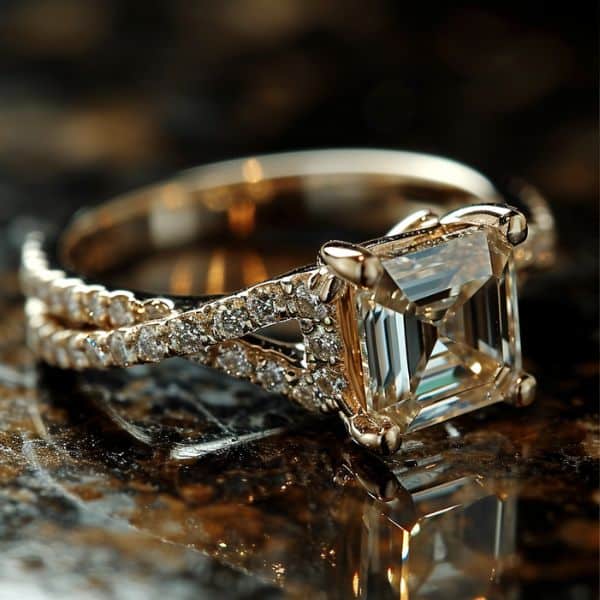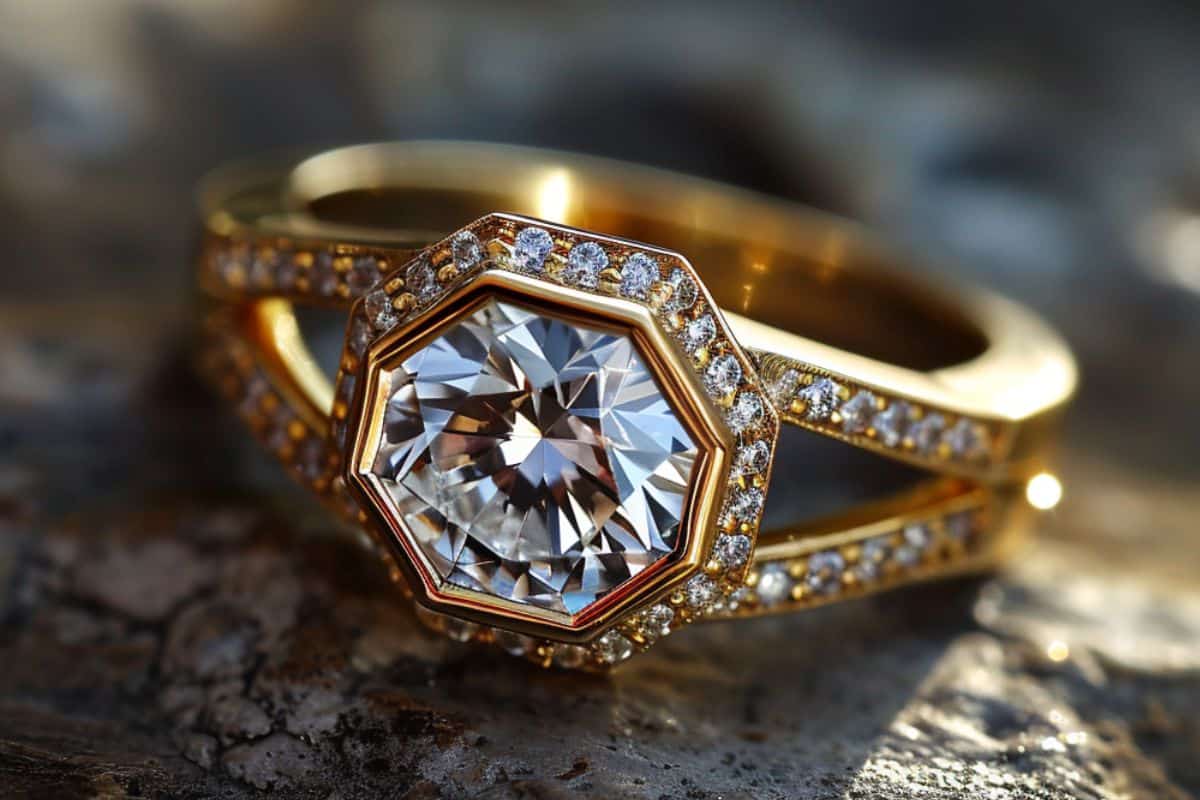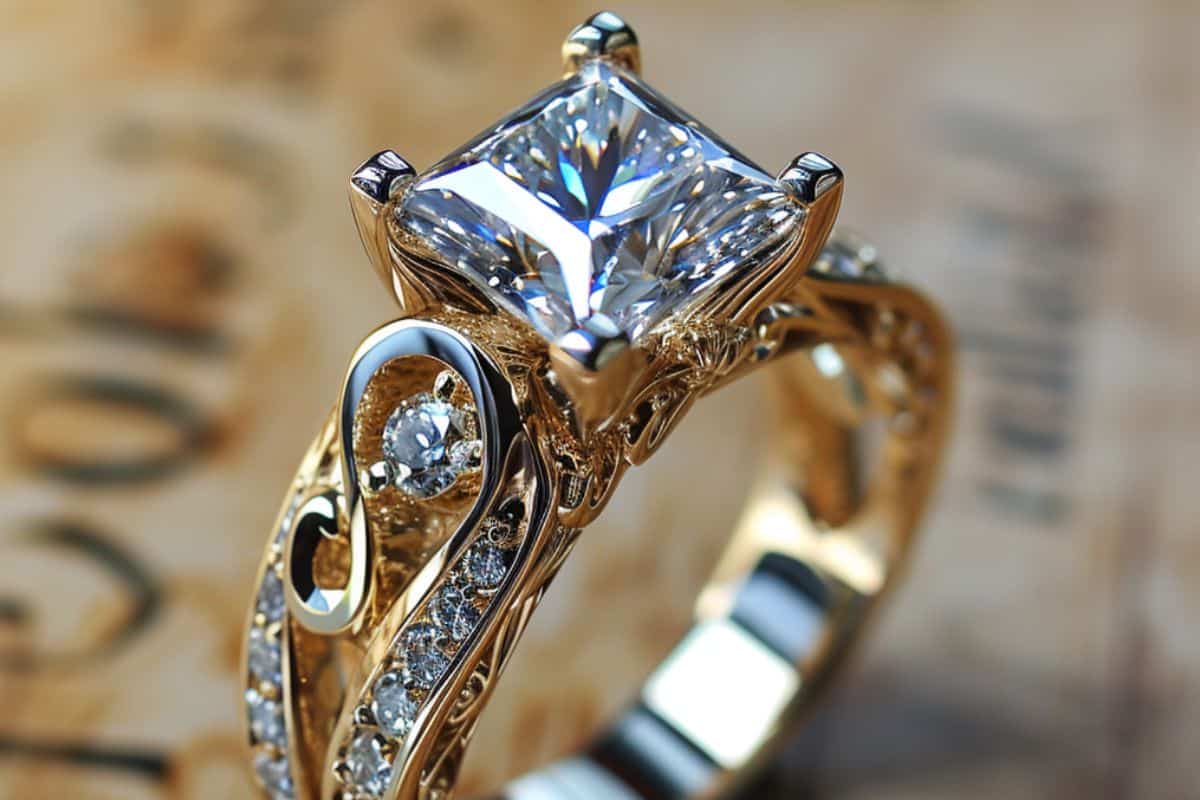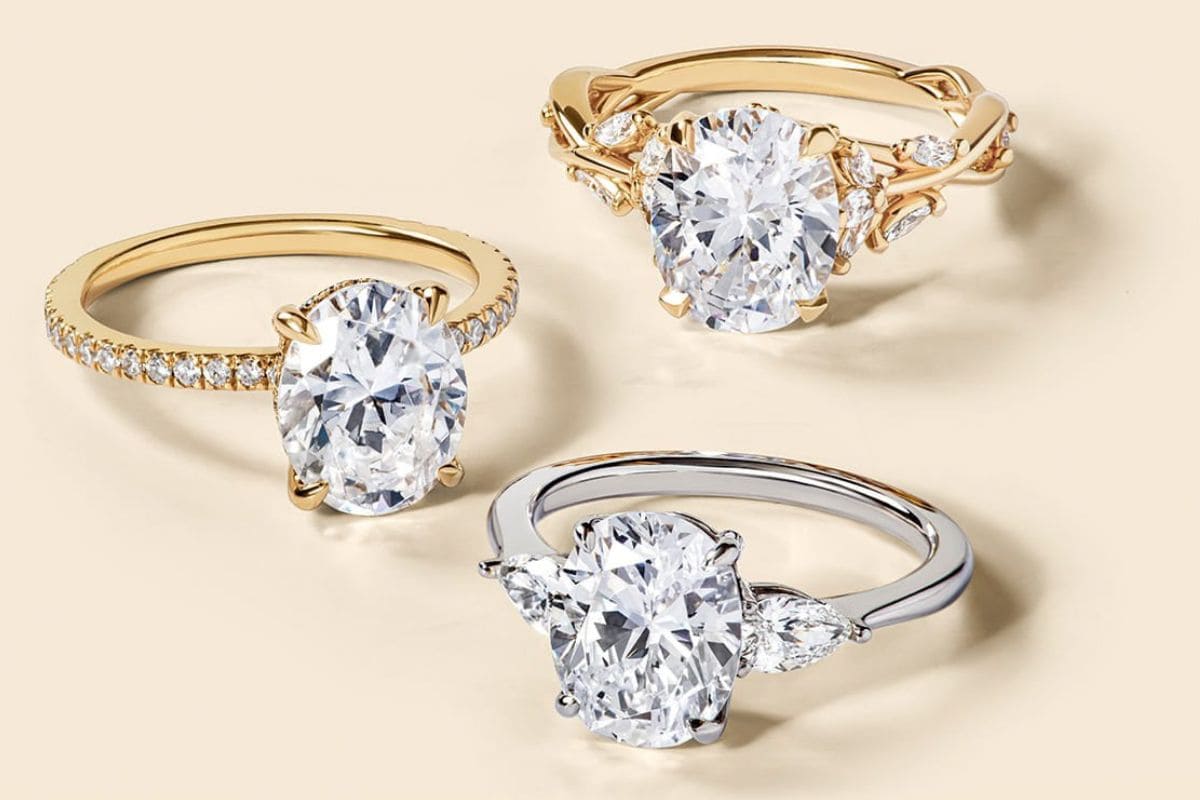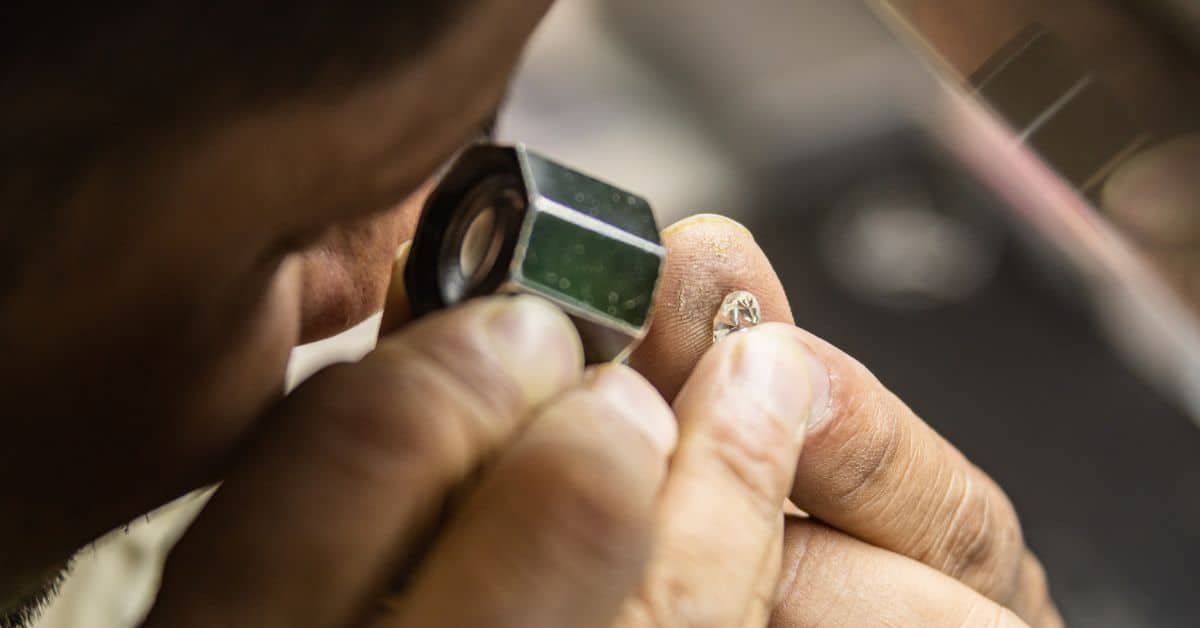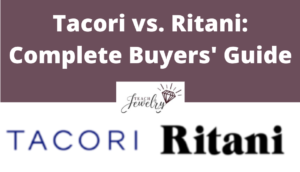
Tacori and Ritani are two popular jewelry vendors that specialize in diamond rings.
Whether you’re buying an engagement ring or wedding band, consider the complete buying experience and not only the final product.
You want a company that guides you through the process of such an important purchase.
I recommend Ritani, but let’s compare Tacori versus Ritani across selection, quality, price, and more, so you’ll know which is best for you.
Overview of Tacori
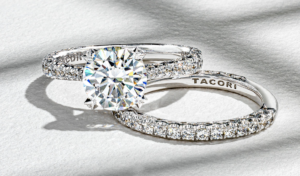
Tacori is jewelry designer and manufacturer founded in 1969 and based in Glendale, California. Its founder, Haig Tacorian, is now chairman, and his son, Paul, is the CEO.
Its main product was initially pearls, but by the mid-2000s, it had become known for bridal jewelry.
This is partly due to the brand’s appearance on the television series “The Bachelor” and “The Bachelorette”, because the show would showcase its product lines as part of the proposals.
Its signature design is the Tacori crescent, known for its cathedral arch and diamonds placed on the inner face of the ring.
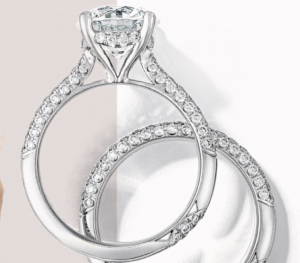
They’ve expanded that line into many variations such as the petite, reverse, and sculpted crescents.
Tacori prides itself on handcrafted jewelry, meaning they don’t mass-produce them with machinery. This gives their rings an added sense of exclusivity and attention to detail.
They also ensure their diamonds are conflict-free through abiding by the Kimberley Process.
Overview of Ritani
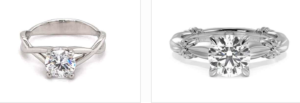
Ritani was founded in 1999 in New York and launched its ecommerce website in 2012. Like Tacori, it was founded as a family business.
They’re most known for engagement and wedding rings, but their selection of jewelry also includes bracelets, necklaces, and earrings.
Ritani promotes itself as offering complete transparency throughout the process of buying a ring. This begins with the educational content on their website, where you can learn about:
- the four Cs of color, carat, cut, and clarity
- tips for buying a ring online
- what to know about setting styles
They also offer price transparency, where you can view the full breakdown of the cost of each diamond, from the wholesaler to operational costs and Ritani’s profit margin.
Ritani takes this a step further by offering price matching. If you show them an online competitor’s diamond is less expensive, they’ll attempt to find you a similar one at a lower cost.
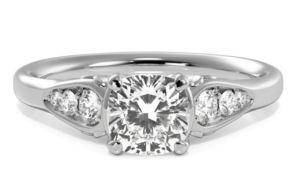
As a primarily online retailer, they compete with the other popular names in the industry like James Allen and Blue Nile to offer a comprehensive experience without having to set foot in a store.
Like those competitors and Tacori, they only source conflict-free diamonds that abide by the Kimberley Process.
What are the Differences Between Tacori and Ritani?
Buying Experience
Don’t get so caught up in an image of a diamond ring online that you neglect the quality of the buying experience.
Selecting a ring isn’t as simple as visiting a store or pressing the checkout button on a website. It often takes several weeks to land on the right one.
Tacori offers a unique buying experience versus Ritani because they don’t sell their engagement rings online.
Instead, their rings are available at retail partners with physical locations.
For example, I viewed the page for its classic crescent design. Where you’d normally see an “add to cart” button, it says “Connect to Retailer”.
I entered a zip code, and the site shows two locations where the ring is located.
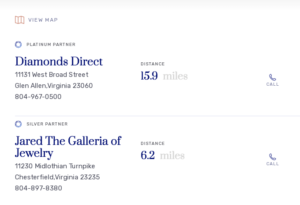
The benefit of this process is it allows you to view the ring in person before deciding to buy, but it adds an extra step.
It’s important to note that almost all Tacori engagement rings are “semi-mounted”. This means small accents are set but not the center diamond.
Many buyers purchase the center diamond from another retailer and have it placed in the Tacori setting.
Ritani’s buying experience offers the best of both worlds. Its in-store preview program allows you to examine your engagement ring in person before you buy.
It also comes with the center diamond already set.
They’ll ship it to one of their local retail partners at no cost to you.
But if you prefer an experience that’s only online, you can have it shipped to your door.
Ritani also allows you to design your own ring. In the top navigation of its website, select “start with a diamond” or “start with a setting”.
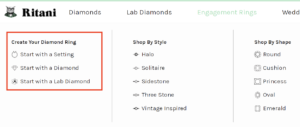
You can find the right combination for your ring, whether it’s a princess cut in a solitaire setting, a round cut with tapered baguettes, or a cushion cut surrounded by one or two halos.
Ritani and Tacori offer unique buying experiences, but Ritani’s combination of an online and in-person experience makes them the winner in this category.
Selection
Some buyers have a specific cut or setting in mind. Others want to explore the variety of options available.
When it comes to selection, Ritani offers far more choices than Tacori.
In fact, they have close to 200,000 natural and lab-grown diamonds in their inventory.
They’re available across all different carat weights, clarity and color grades, and cuts.
For example, it lists 10,000 emerald cut diamonds, and 1,400 radiant cuts.
If you’re overwhelmed by the number of choices, you can filter for “Recommended”, and Ritani will show you three diamonds with ideal cuts and high grades across color and clarity.
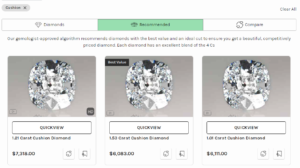
A similar process is available for its 153 types of settings. Their selection includes:
- Halo
- Sidestone
- Solitaire
- Three-stone
- Vintage
These settings can be paired with any Ritani diamond.
For women’s wedding bands, there are more than 300 styles to choose from, and for men’s, that number increases to more than 600.
Tacori promotes 465 engagement rings in its selection. Their designs are available with many types of cuts from round and princess to marquise and pear cuts.
They also feature four- and six-prong settings, several types of halos, and V-prongs.
Compared to Ritani, Tacori lists fewer varieties of women’s wedding bands, but you still have more than 100 to choose from on its website.
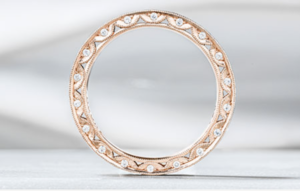
For men’s, there are 24 types listed online including classic styles, mixed finishes, and decorative.
Tacori and Ritani expand beyond engagement and wedding rings into fine jewelry. They’re available for purchase online, so you don’t have to ship them to a local retail partner for pickup.
Jewelry Quality
You can be confident in the quality of Ritani and Tacori jewelry. Both have established strong reputations in the industry for providing exceptional pieces.
Where Ritani distinguishes itself compared to many other retailers is its handcrafted jewelry and intricate designs on the setting.
This time- and effort-intensive process adds a unique touch and makes each one-of-a-kind.
The rings are assembled by its master artisans after an extensive design process. Only gems with at least VS clarity and G color are used as accents on the piece.
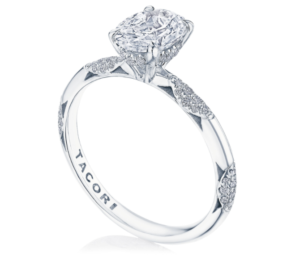
These grades mean the diamond is eye-clean, so you won’t see any inclusions or color without magnification.
When a setting features its crescent design with high-quality diamonds, you can be confident it’s a quality piece.
Ritani’s engagement and wedding rings are also handcrafted designs.
Whether it’s a simple solitaire setting or one with detailed design features like milgrain or channel-set accents, their craftsmanship competes with the best.
In regard to the quality of their diamonds, you shouldn’t assess that based on the brand. Instead, it should be validated by a third-party certification.
Ritani offers diamonds graded by the:
- Gemological Institute of America (GIA)
- International Gemological Institute (IGI)
- American Gem Society (AGS)
We recommend you select one certified by the GIA or AGS because they’re known as the most reliable organizations for examining the quality of a diamond.
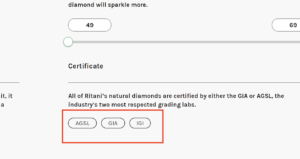
When comparing the quality of Tacori versus Ritani, you can’t go wrong with their settings and a GIA, AGS, or GCAL certified diamond on top.
Price
You’ll pay more for Tacori settings compared to ones from Ritani.
Because Tacori doesn’t sell loose diamonds with most of their rings, the best way to compare price is by examining similar types of settings from each.
Exact comparisons aren’t available because of their unique styles, but for example, this solitaire setting from Tacori features small diamonds around the basket and the crescent toward the base of the shank.
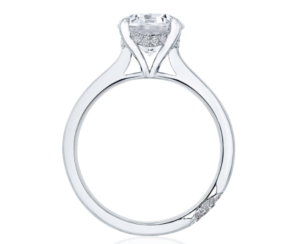
For the platinum version with cathedral arches, the price is $3,190.
This cathedral setting from Ritani is comparable, except it doesn’t feature the accents. It’s price is $786.80.
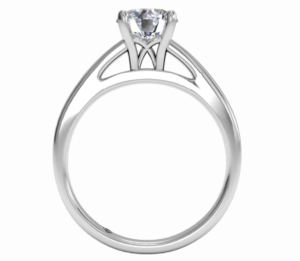
As another example, this Founder’s Collection engagement ring setting from Tacori features accents surrounding the diamond and four crescents around the ring.
It costs $4,150.
This comparable setting from Ritani, in platinum with channel-set diamonds, costs $1,071.
Again, because of Tacori’s unique designs, it’s difficult to make a one-to-one comparison, but these examples show Ritani’s settings are far less expensive.
Tacori positions itself as a premium brand, and you pay a higher price for that.
Many buyers focus on the quality of the diamond and are willing to pay a premium for a higher carat weight or better grades across cut, clarity, and color.
So they instead choose a less expensive setting.
If you’re not concerned about an intricate setting and want to put any savings toward the diamond, we recommend Ritani over Tacori.
Return Policies and Warranties
Diamond rings are too expensive of a purchase for sellers to be lacking in their returns and warranties. Ritani and Tacori differ in their approaches to these policies.
Tacori allows returns within 15 calendar days, as long as the item is in the original condition. For the first 30 days, it allows exchanges. After 30 days, the sale is final.
They also note how if you purchased their jewelry from an authorized retailer, you must abide by their return policy, which may differ depending on the retailer.
You can read more about Tacori’s return policy here.
Ritani allows returns within 30 days. They’ll even arrange to have the piece picked up at your door, and they’ll cover shipping for customers in the United States.
It should be noted that custom items, including engraved rings, can’t be returned for a refund.
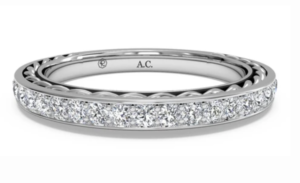
You can read all the details of Ritani’s return policy here.
Ritani also offers a lifetime warranty that covers manufacturing defects. It also includes:
- Center or side stone tightening
- Ring cleaning
- Rhodium plating to preserve your ring
This warranty applies to engagement and wedding rings, not jewelry.
Tacori doesn’t include any warranty on its website.
You should confirm the warranty policy with Tacori if you purchase online or with the authorized retailer.
Customer Service
Ritani and Tacori both have customer service teams available to answer questions before or after your purchase.
Ritani’s team is available every day except Saturday, and if you’d like to connect during off hours, you can book an appointment through chat or email.
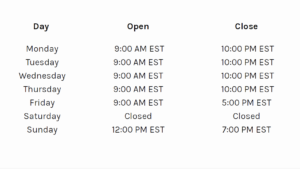
They have expert gemologists on staff who can help you find the perfect diamond ring.
If you have questions about the four Cs, the difference between a solitaire and pave setting, or would like them to walk you through the GIA or IGI diamond certification, their team is there to help.
If you’re new to buying jewelry, we recommend connecting with one of their gemologists so you don’t overpay.
Tacori also allows you to connect with their jewelry experts to browse rings. Their live video consultations can teach you what you need to know before purchasing their pieces.
While Tacori says you should contact them prior to a purchase, the company does encourage buyers to connect with the authorized retailer after the purchase.
So if you have a question about warranties, return policies, and whether something is covered, the authorized retailer should be your first contact.
Reviews from Customers
You should read reviews from real customers for Ritani and Tacori because it’s not enough to read what a company says about themselves.
They might claim to provide quality jewelry and exceptional customer service, but real customers tell the actual story.
Ritani has positive sentiment online from customer reviews and are known to address any issues that do arise.
For example, they’ve earned an A+ from the Better Business Bureau and 4.4 out of five stars on Wedding Wire.

Eighty-seven percent of customers on the Wedding Wire recommend Ritani. Specific reviews include remarks such as:
- Quality rings for the price
- Attentive customer service
- Wide selection
This demonstrates how Ritani backs up their claims of satisfying customers.
Tacori has fewer customer reviews online, and the sentiment is mixed.
While some reviewers note the craftsmanship of the settings, others warn buyers not to wear the rings during physical activity because the small stones and other details may loosen.
This may be a downside but is expected from a ring with as much detail as one from Tacori.
Ninety-seven percent of customers on the Wedding Wire recommend Tacori, but there are only six reviews.

Their comments mostly focus on the intricate details and what an upgrade a Tacori ring is over a traditional solitaire setting.
Customers also recommend pairing the engagement ring with one of their wedding bands.
Should You Buy a Diamond Ring from Ritani or Tacori?
Ritani and Tacori both offer exceptional rings for your wedding or engagement.
But in the comparison of Tacori versus Ritani, I recommend Ritani because of their extensive selection, quality diamonds and settings, and affordable prices.
Although Tacori has original styles and their unique crescent design, many buyers are more focused on the diamond than the setting, and you can put that savings into a more valuable diamond.
Ritani offers tremendous value with their diamonds and settings, and you should explore their selection to learn which combination is the right fit for you.
But if you’ve narrowed your choice to Ritani or Tacori, you can’t go wrong with either.

Jacob Clarke
Jacob Clarke is the founder of TeachJewelry.com.
He earned an Applied Jewelry Professional Diploma from the Gemological Institute of America (GIA) and now brings you essential information about diamonds, settings, and more.
Jacob has consulted with leading jewelry brands, and his work has been cited in Diamond Nexus and other industry publications.
He's also a member of the International Gem Society.
Jacob enjoys discussing jewelry with readers, so contact him with any questions at jacob.clarke@teachjewelry.com.
